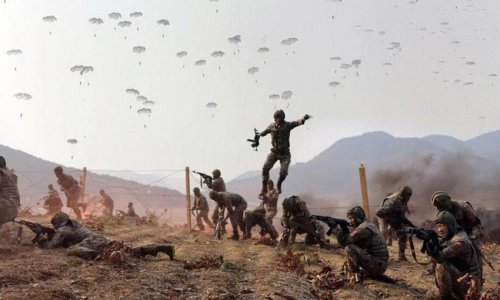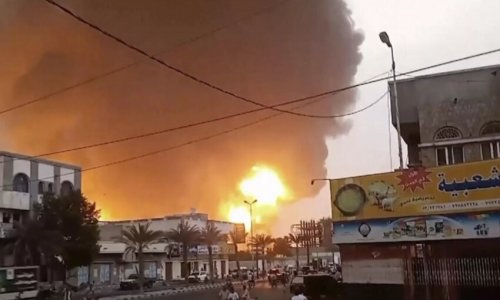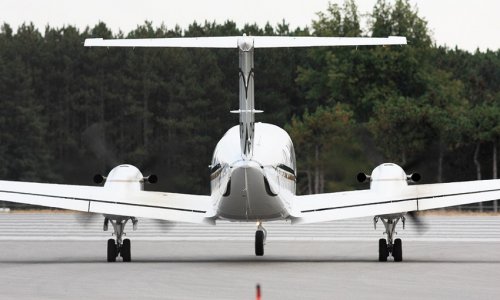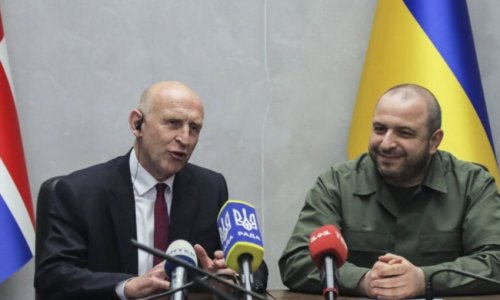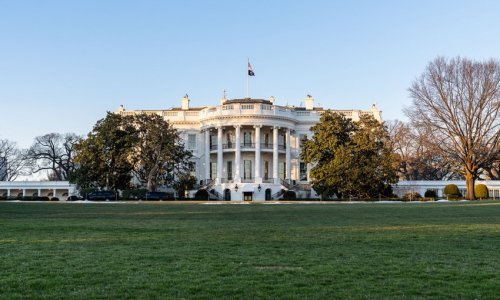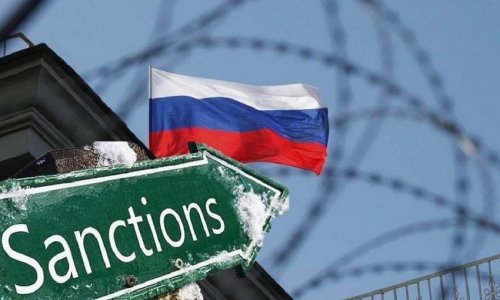Follow us !
Sunni militants 'seize Iraq's western border crossings'
World
16:41 | 23.06.2014
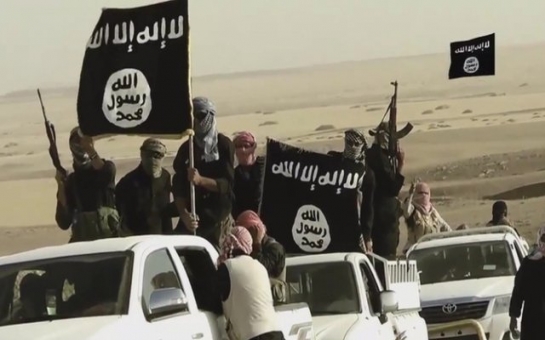
Sunni militants 'seize Iraq's western border crossings'
The Iraqi government appears to have lost control of its western borders after Sunni militants reportedly captured crossings to Syria and Jordan.Officials said the rebels took two key crossings in Anbar on Sunday, a day after seizing one at Qaim, a town in the province that borders Syria.The strategically important airport in the northern town of Tal Afar has also reportedly fallen to the rebels.Isis-led militants have cut a swathe through parts of Iraq.US President Barack Obama warned of the risk of the insurgents destablising other countries in the region."We're going to have to be vigilant generally," he told the US TV network CBS, in case the militants "spill over into some of our allies like Jordan"."Their extreme ideology poses a medium and long-term threat, " he added.Since the fall of Mosul in early June, Isis - the Islamic State in Iraq and the Levant - have helped win large areas in the west and north.They have taken four strategically important towns in the predominantly Sunni Anbar province - Qaim, Rutba, Rawa and Anah - in the last two days.Gunmen reportedly captured the border posts of al-Waleed, on the Syrian frontier, and Turaibil, on the Jordanian border, on Sunday after government forces pulled out.The capture of frontier crossings could help Isis transport weapons and other equipment to different battlefields, analysts say.The BBC's Jim Muir in IrbilAfter a bit of a pause and some patchy fighting in a belt around 70km (45 miles) north and north-east of Baghdad, the Sunni rebels seem to be on the move again.The focus has shifted partly to Anbar, the vast, mainly Sunni-populated province to the west of Baghdad, an area where the tribes are particularly strong.The reported fall of two more border posts, one on the main road to Jordan, and the other to Syria, means that the government has lost control of all its western borders.One tribal leader said that 90% of the province is now in rebel hands.Even before the current crisis began, the city of Falluja, barely 30km from Baghdad's western edge, had been held by rebels since January, along with half of the provincial capital Ramadi.In many places, troops and police seem to have left their posts after being given safe passage by the militants, to avoid bloodshed.If reports of the capture of the important airport at the strategic northern town of Tal Afar are confirmed, it would be bad news for the Baghdad government, which had been hoping to use the airport as a launching-pad for an attempt to recapture the nearby city of Mosul.The funeral of a senior army officer who was killed in the fighting for Qaim on Friday was targeted by a suicide and car bomb attack in Ramadi. At least six people were killed as they gathered to mourn Brig Gen Majid al-Fahdawi.US 'stooges'Iran's supreme leader Ayatollah Ali Khamenei said on Sunday he opposed any US intervention, and accused Washington of "seeking an Iraq under its hegemony and ruled by its stooges"."The main dispute in Iraq is between those who want Iraq to join the US camp and those who seek an independent Iraq," he said, dismissing talk of sectarianism.The US, which pulled out of Iraq in 2011, is deploying some 300 military advisers to Iraq to help in the fight against the insurgents.lineAnalysis from BBC Persian's Bozorgmehr SharafedinThe Obama administration is signalling that it wants a new government in Iraq without Prime Minister Nouri Maliki before launching any attack on Isis, but Iran's Supreme Leader has rejected both ideas.Ayatollah Khamenei strongly opposed "the intervention of the US and others in the domestic affairs of Iraq", and said the US is not pleased with the results of the new election and "is seeking an Iraq under its hegemony and ruled by its stooges".Khamenei's anti-US remarks weaken the possibility of co-operation. Iran feels it has the upper hand in Iraq and would try to resolve the crisis by the help of "Iraqi people, government and Shia clerics".lineUS Secretary of State John Kerry, speaking in Cairo on Sunday, urged Iraq's leaders "to rise above sectarian motivations and form a government that is united in its determination to meet the needs and speak to the demands of all of their people".He said it was a "critical moment" and warned that Isis' "ideology of violence and repression is a threat not only to Iraq but to the entire region".Sunni tribal leaders in Anbar say Isis militants make up only a small number of the fighters involved in taking over the province - most are tribes people and former security personnel from the Saddam Hussein era.Shaikh Raad al-Suleiman, a senior figure in Ramadi, said the reason they had captured so much territory was because soldiers in the Iraqi army were not prepared to fight."Most of the officers and men came to their senses, left their arms, guns and vehicles and fled out of Anbar," he said.(BBC)Bakudaily.az

